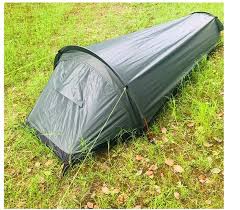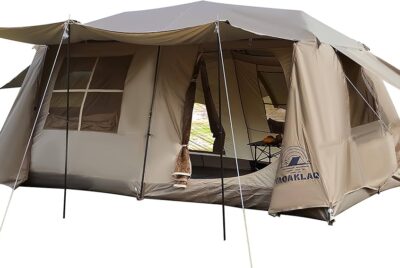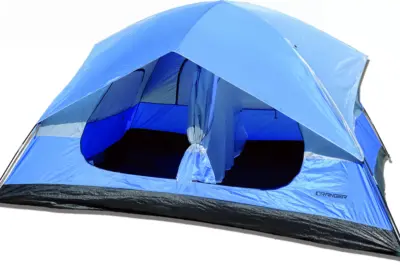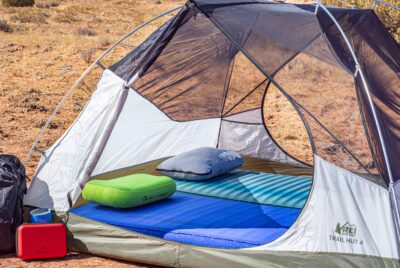The Perfect 1 Person Camping Tent
Introduction
Embarking on a solo camping adventure can be an exhilarating experience, offering a chance to reconnect with nature and yourself. But to make the most of your outdoor escapade, you’ll need the right gear, starting with a reliable 1-person camping tent. In this guide, we’ll delve into everything you need to know about 1-person camping tents, from choosing the right one to maximizing your camping experience.
Understanding 1 Person Camping Tents: What You Need to Know
Before diving into the world of 1-person camping tents, let’s take a moment to understand what sets them apart from their larger counterparts.
What Makes 1 Person Tents Unique
Compact Size: One of the most significant advantages of a 1-person tent is its compact size and lightweight design, making it ideal for solo backpacking trips or minimalist camping adventures.
Ease of Setup: 1-person tents are typically designed for quick and easy setup, with simple pole structures and intuitive designs that allow you to pitch your shelter in minutes, even in challenging conditions.
Portability: When space is limited, and every ounce counts, a 1-person tent offers unmatched portability, allowing you to pack it into your backpack or bike panniers without adding unnecessary bulk or weight.
Choosing the Right 1 Person Camping Tent: Factors to Consider
Now that you understand the basics, let’s explore the key factors to consider when choosing the perfect 1-person camping tent for your outdoor adventures.
Factors to Consider
Weight: For backpacking trips where every ounce matters, opt for a lightweight tent that won’t weigh you down on the trail. Look for tents made from ultralight materials such as silnylon or Dyneema.
Durability: While lightweight is essential, durability is equally crucial, especially if you’ll be camping in rugged terrain or exposed conditions. Choose a tent with robust construction and high-quality materials that can withstand the rigors of outdoor use.
Weather Resistance: Whether you’re camping in the heat of summer or the chill of winter, your tent should provide adequate protection from the elements. Look for features such as waterproof coatings, taped seams, and sturdy rainflys to keep you dry and comfortable.
Livability: While solo camping is all about simplicity, you still want a tent that offers enough space and comfort for a restful night’s sleep. Consider features such as interior pockets for gear storage, vestibules for wet gear, and ample ventilation to prevent condensation buildup.
Exploring Popular 1 Person Camping Tent Brands
With countless options on the market, it can be challenging to narrow down your choices. Here are a few popular brands known for their quality and performance in the world of 1 person camping tents.
Top Brands to Consider
Big Agnes Fly Creek HV UL1: Big Agnes is renowned for its ultralight backpacking tents, and the Fly Creek HV UL1 is no exception. With its innovative design and lightweight construction, it’s a favorite among solo backpackers looking to shave ounces without sacrificing comfort.
MSR Hubba NX 1-Person Tent: MSR is synonymous with quality outdoor gear, and the Hubba NX 1-Person Tent is no exception. With its spacious interior, durable construction, and easy setup, it’s a versatile option for solo adventurers seeking reliability in any conditions.
REI Co-op Passage 1 Tent: REI Co-op is known for its affordable yet high-quality outdoor gear, and the Passage 1 Tent is a prime example. With its simple setup, ample interior space, and budget-friendly price tag, it’s an excellent option for first-time solo campers or those on a tight budget.
Tips for Maximizing Your Solo Camping Experience
Now that you’ve chosen the perfect 1-person camping tent, it’s time to hit the trail and make the most of your outdoor adventure. Here are a few tips to enhance your solo camping experience.
Pro Tips for Solo Camping
Pack Light: When camping solo, every ounce counts. Opt for lightweight gear and pack only the essentials to keep your pack weight to a minimum.
Stay Organized: With limited space in your tent, staying organized is key. Use stuff sacks or packing cubes to keep your gear neatly organized and easily accessible.
Practice Setup: Before heading out on your solo adventure, practice setting up your tent at home or in your backyard. Familiarizing yourself with the process will make pitching your tent a breeze once you’re out in the field.
Be Mindful of Safety: When camping alone, safety should always be a top priority. Familiarize yourself with basic wilderness first aid and emergency procedures, and always let someone know your plans before heading out.
Conclusion
Choosing the perfect 1-person camping tent is the first step toward an unforgettable solo adventure in the great outdoors. By considering factors such as weight, durability, and weather resistance, and exploring popular brands known for their quality and performance, you can find a tent that meets your needs and enhances your camping experience. So, pack your gear, pitch your tent, and embark on a solo adventure filled with exploration, discovery, and endless possibilities.




